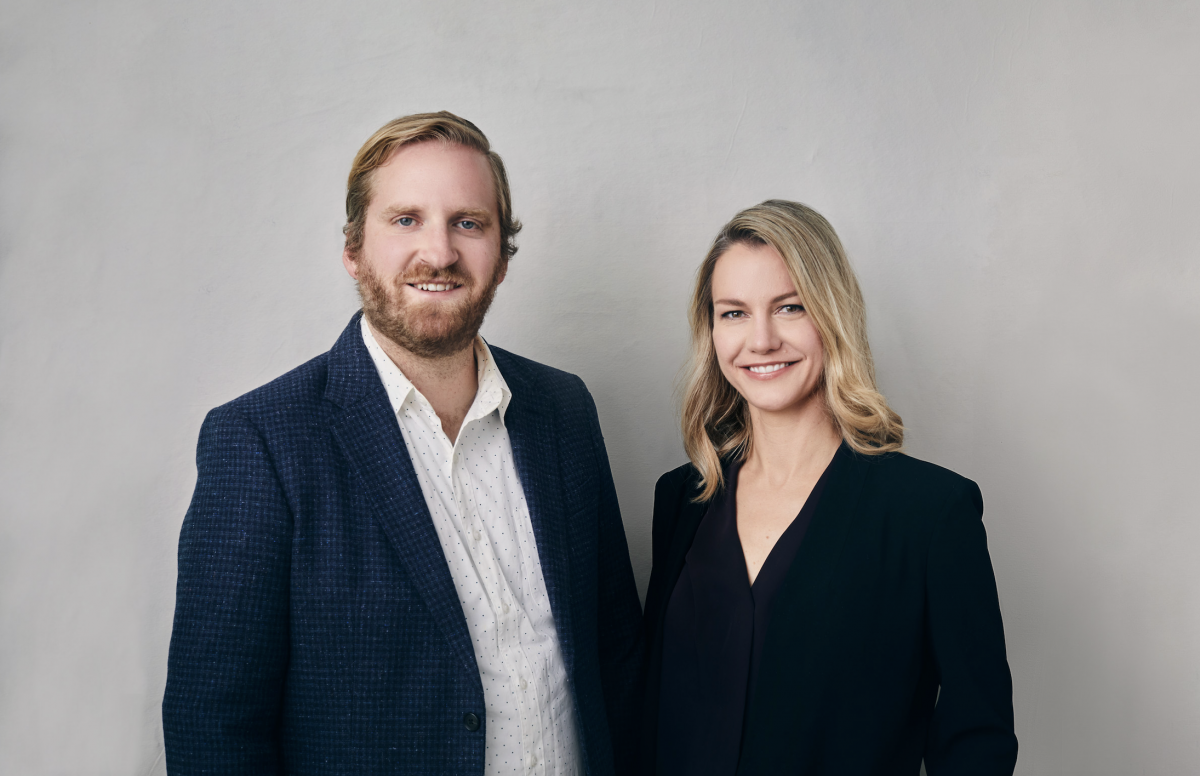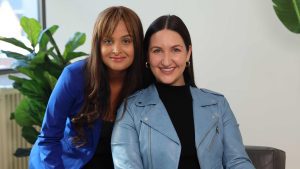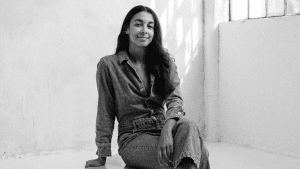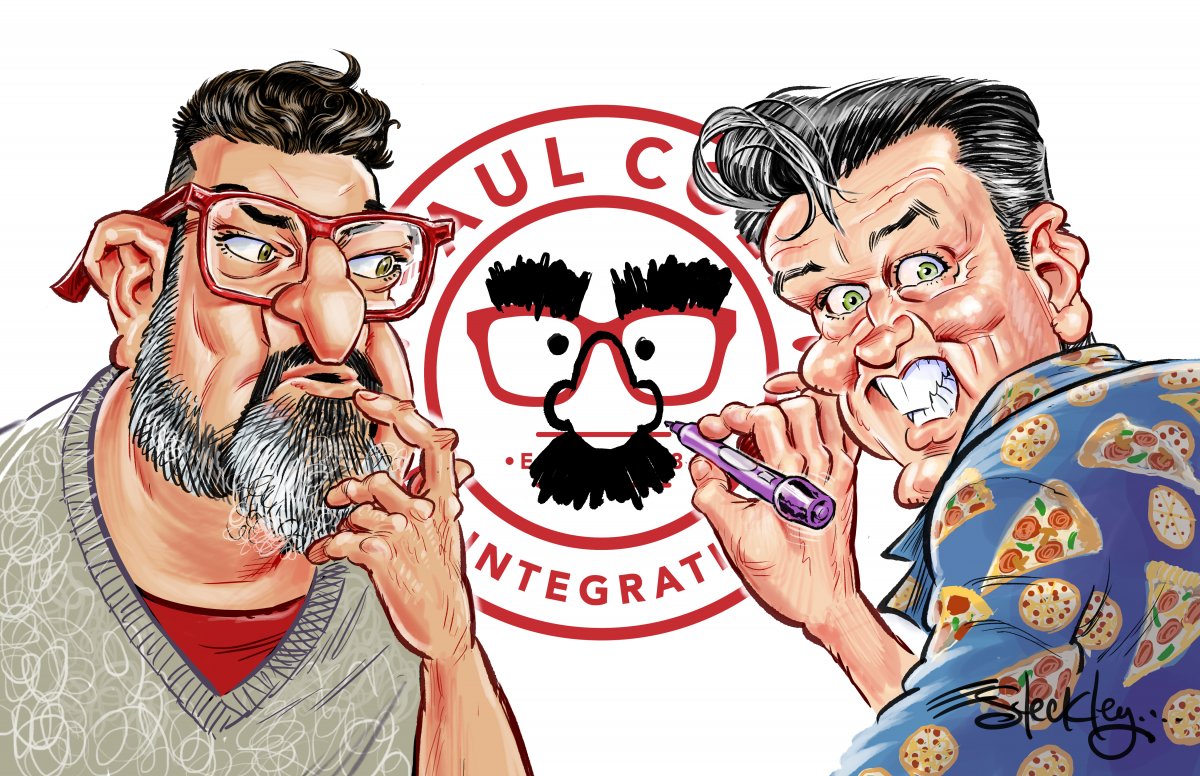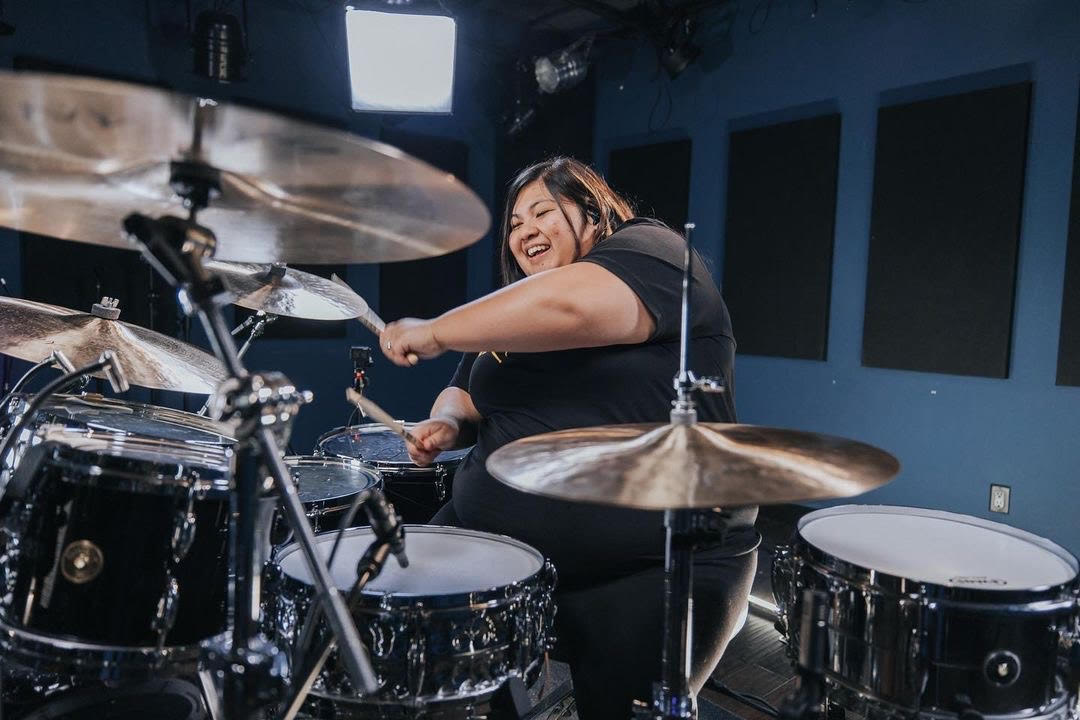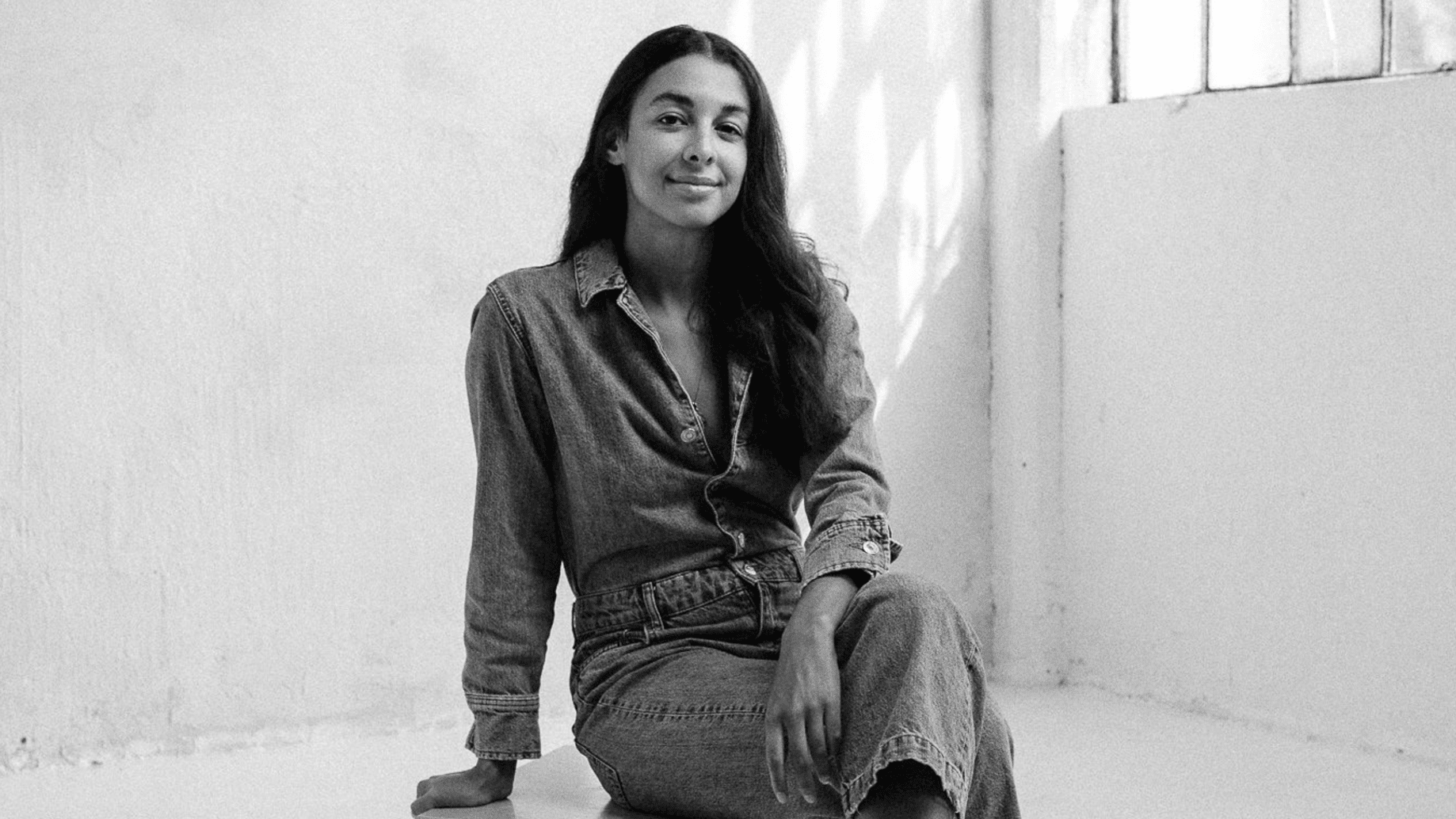[vc_row][vc_column][vc_column_text]Mike Gettis and Noelle Hjelte are cutting through the noise with their direct-to-consumer (DTC) knife brand, Kilne.
Created to balance the needs of everyday consumers with the quality demanded by professional chefs, Gettis and Hjelte are confident that the Kilne knife set is the only one you will ever need. So much so, they provided a 60-day return policy and lifetime guarantee.
How can they be so sure that they will be able to win over consumers with their product? Easy: Gettis has done it before.
As the co-founder and former CEO of Canadian DTC sleep giant, ENDY, Gettis learned the ins and outs of conquering the e-commerce world. Now, he is applying that knowledge to Kilne, and he has his wife, Hjelte, by his side to do it. Hjelte brings her own set of skills to the table with 15 years of experience in the communications and PR industry under her belt. Together, they are virtually unstoppable and ready to take on a new journey as co-founders.
“It’s really cool to see your partner in their zone, doing their thing,” said Hjelte. “One of the things we’ve found quite helpful is to divide and conquer. It’s about picking areas that we’re going to own and lead and then trying to stay out of the other person’s way [laughs].”
While the two of them were ready to take on anything, neither could have predicted a global pandemic. It may have slowed down the process of getting Kilne into people’s hands, but it also makes their knives more relevant than ever.
With social distancing in effect, people began cooking at home more than ever before. As the pandemic continues, the trend of utilizing one’s own kitchen seems to only be on the rise.
“We had an eye towards the online grocery market and how much that was growing,” said Gettis. “There was an obvious trend there that people are going to need tools to cook all of the produce that they’re bringing into their homes. So, we saw it as a good opportunity.”
Although Kilne has launched as a knife set, the co-founding pair plans to use that opportunity and expand their range of cookware to take over kitchens across Canada. For this week’s Entrepreneur of the Week spotlight, Bay Street Bull spoke with Mike Gettis, CEO of Kilne, and Noelle Hjelte, President of Kilne, about filling a gap in the kitchenware market, listening to your consumers, and going from a couple to co-founders.
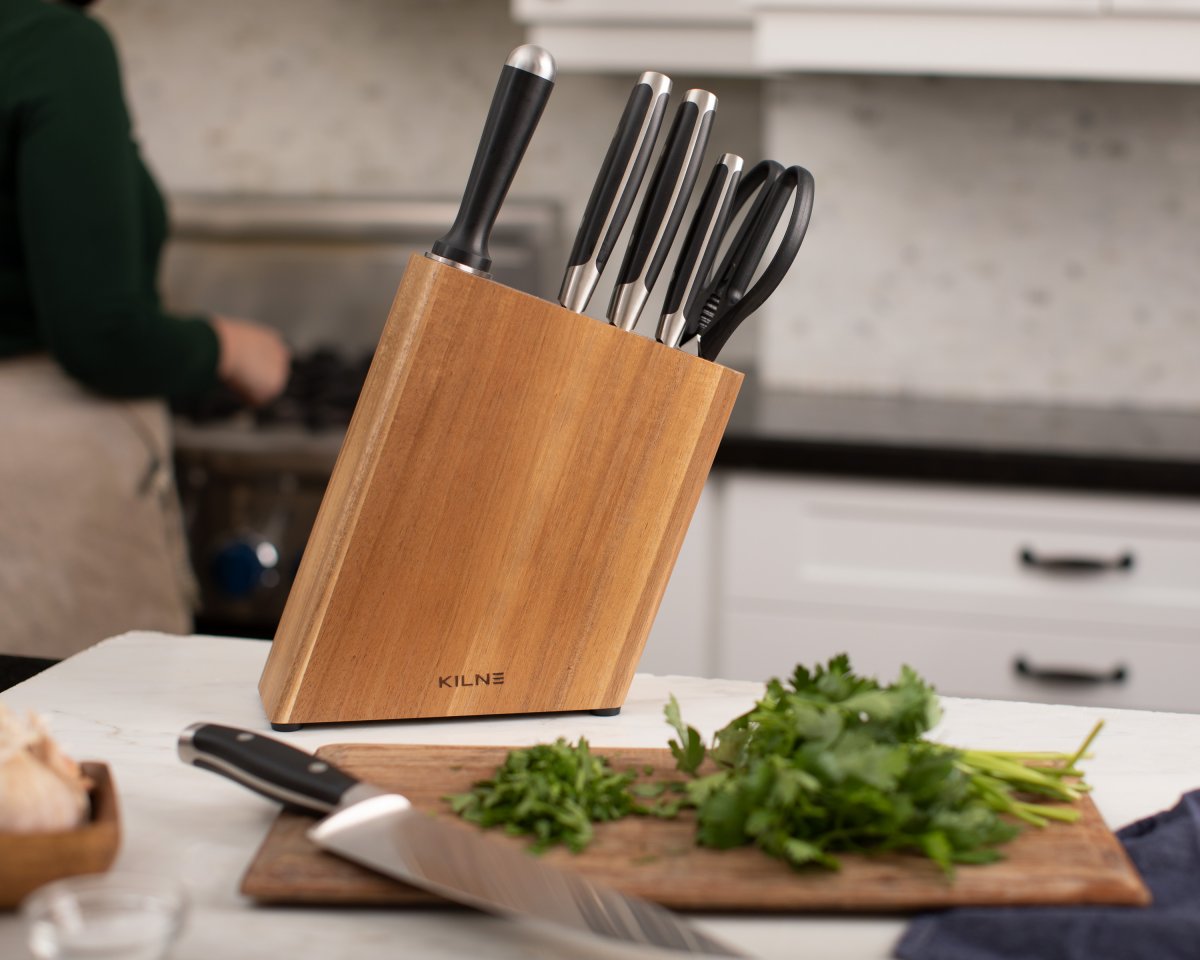

Noelle: We had the personal experience of buying our first knife set as a couple and as a family that has young kids who were cooking a lot at home. It was incredibly frustrating and we felt like we could get something that was way better quality for a lower price point. So, we decided to tackle that together.
Was it a hard process of coming up with the perfect knife and getting the quality that you wanted to achieve?
Mike: Yeah, we went through quite a few different versions. We ordered every kind of knife you could possibly order and tried them all in a chop off [laughs]. When we started doing samples and things, that was sort of what we were looking at: the amateur chef. The person who’s cooking at home and is busy wants a knife that works well, works consistently, and that they can keep for a long time. So that’s what we focused on—getting the best quality knife that does all of that.
Kilne launched, then the pandemic happened. What was the effect on the company?
Mike: If anything the pandemic slowed us down. There was a point when nobody was doing anything. And so we were just kinda like, “Okay, I guess we’ll get a sample soon hopefully.” We were able to really get things moving once manufacturers and everybody got back at work.
Noelle: People are shopping online more than ever and people are also cooking at home more than ever. I don’t think that’s a trend that’s going to stop. I think that consumers will continue to go online and by going directly to consumers, Kilne cuts out that middle man, and we’re allowed to pass the savings on to our customers. Also, you don’t have the inconvenience or the confusion of going to a store and seeing all these different kinds of products and not knowing what’s right for you. We have a 60-day return policy and we’ve got a lifetime guarantee, so that’s a really low risk to order the knives and get them delivered right to you.
It takes away all the stress of choosing the knives. You just get the perfect set.
Noelle: Yeah! We’ve curated the set with what we actually use in the home and with cooking everyday meals. Neither of us is a professional chef and that’s why we engaged some of Canada’s top chefs to help us test and launch the knives. Mike and I have that home cook experience where we are generally cooking for ourselves and our kids at home, like cutting up small apples or whipping up a stir fry. You need tools that are going to be sharp and good for cutting up everyday foods. Working with the chefs elevated Kilne to another level in terms of what’s going to last. That’s why we do the lifetime guarantee—we don’t want them going to the landfill. We want these products to be sustainable in a family home.
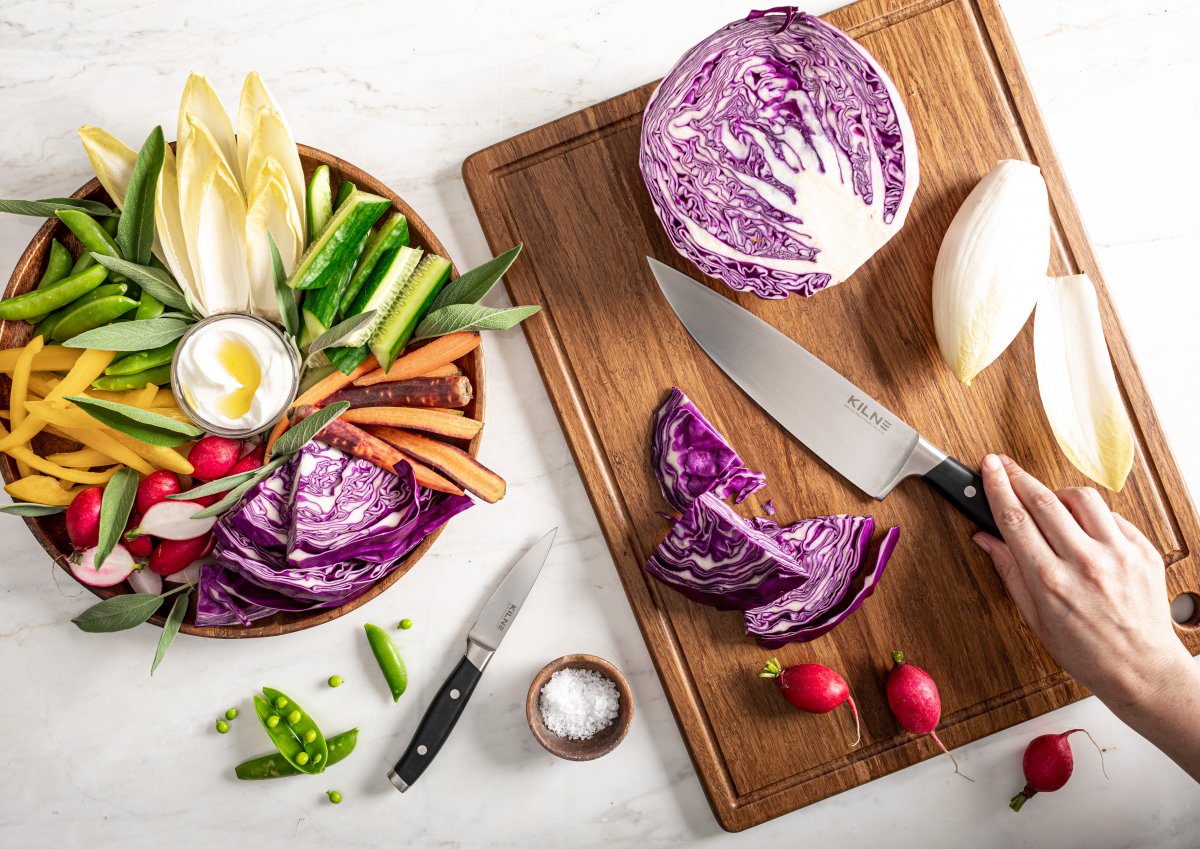

Mike: In some ways, it was going back to the start again. It reminded me of a lot of lessons from the beginning because you go from having a big team to just being in startup mode again. I think a lot of it is just being okay with the little things that don’t go perfectly. You’re learning quickly and you’re moving fast and you’re in a new vertical, so there are new nuances to everything. So, just going back to being customer-focused, taking every and all feedback they have is super valuable. We’ll be looking at customer feedback in terms of our product pipeline going forward, in terms of our marketing, in terms of our service and everything, while building our business up as we go.
So far, we’ve got a really great response. People really like the product. This Black Friday, we were able to have a really good start, which is helpful. It’s always good to get your first bit of customer love coming in and to know that all that work we’ve put into play is something that the market likes.
And despite having experience with startups and being a founder, has the pandemic affected any of your previously used strategies?
Mike: Well, if anything, it’s changed just the way people interact. When we started ENDY, we had an office with no windows. Now, everyone’s working from home and working remotely. In some ways I prefer doing remote working as a startup, because the brick and mortar office that doesn’t have windows isn’t that fun; being able to work from home is a little cozier. As we grow and hire more people, we can then look at having an office, but I think that the way of working remotely is beneficial to startups because a lease is something that can really burn cash early. If it’s not a retail space, you’re not selling anything, and it’s just operations to house people to work, it doesn’t add as much value. So, I’m a big fan of remote working.
Noelle, you touched on this earlier with the future of DTC and people’s online habits. What research were you doing on DTC before launching Kilne and what have you learned as you’ve continued throughout the pandemic?
Noelle: The cookware market is something that’s growing a lot. I think it’s estimated that kitchenware and small appliance sales are up 20 percent in the past year. So, looking at that as a growing market, I think part of it is cooking more at home. I also think part of it is more of that farm to table movement and people wanting to actually create something in their own kitchen. So, research-wise, we know it’s something that people need and use and cookware is a category that’s only gonna grow.
Mike: Yeah, and we had an eye towards the online grocery market and how much that was growing. There was an obvious trend there that people are going to need tools to cook all of the produce that they’re bringing into their homes. So, we saw it as a good opportunity. And then, with our company being Canadian and made in Canada, we’re finding that people are already saying, “Oh, thank goodness that it’s a Canadian company that’s delivering from Canada.” They’re not dealing with all the issues with customs or buying in a different currency or dealing with return policies cross the border. We’re already seeing a lot of love for being Canadian.
What’s down the pipeline? Will you guys be expanding into new products within the cookware market?
Mike: It’s an interesting category because there are so many different brands and a different brand seems to own each piece. We’re looking to build a brand across a lot of sub-verticals within the kitchen. We’re looking at using data and surveys and trying to get info from customers. So yeah, we have a couple of ideas that we’re working on that we’ll be announcing in the next few months as we get to work on production and building.
Noelle: I also think as we’ve worked with the knives, in terms of product design and testing and working with the professional chefs, we’ve developed some great partnerships and some great relationships where we feel really confident building another product already. We see that there’s so much opportunity and we’ve gotten tons of great feedback in terms of Kilne’s direction.
Mike: Yeah. We’re trying to bridge the gap where we’re working with the chefs, while we’re amateur chefs—which is actually probably giving myself probably more credit than I deserve [laughs]. So, bridging the gap of what the everyday cook needs versus a professional chef that has a different set of demands. By balancing those, you get items that fit the quality standard of a professional-grade kitchen but are made for the amateur chef, like me, that doesn’t really know how to cook.
And going off on a different route here. You two are a couple, who are now co-founders. What has that journey kind of been like of working together for work and then also at home?
Noelle: It’s been interesting. It’s really cool to see your partner in their zone, doing their thing. One of the things we’ve found quite helpful is to divide and conquer. It’s about picking areas that we’re going to own and lead and then trying to stay out of the other person’s way [laughs].
Mike: As a business owner you can develop this syndrome called “founderitis,” where you want to be in charge of everything and have an opinion on absolutely everything. But, I think the key for a partnership to work well is to really just swallow that back and let your partner handle their piece and vice versa. That’s worked better for us, doing it that way.
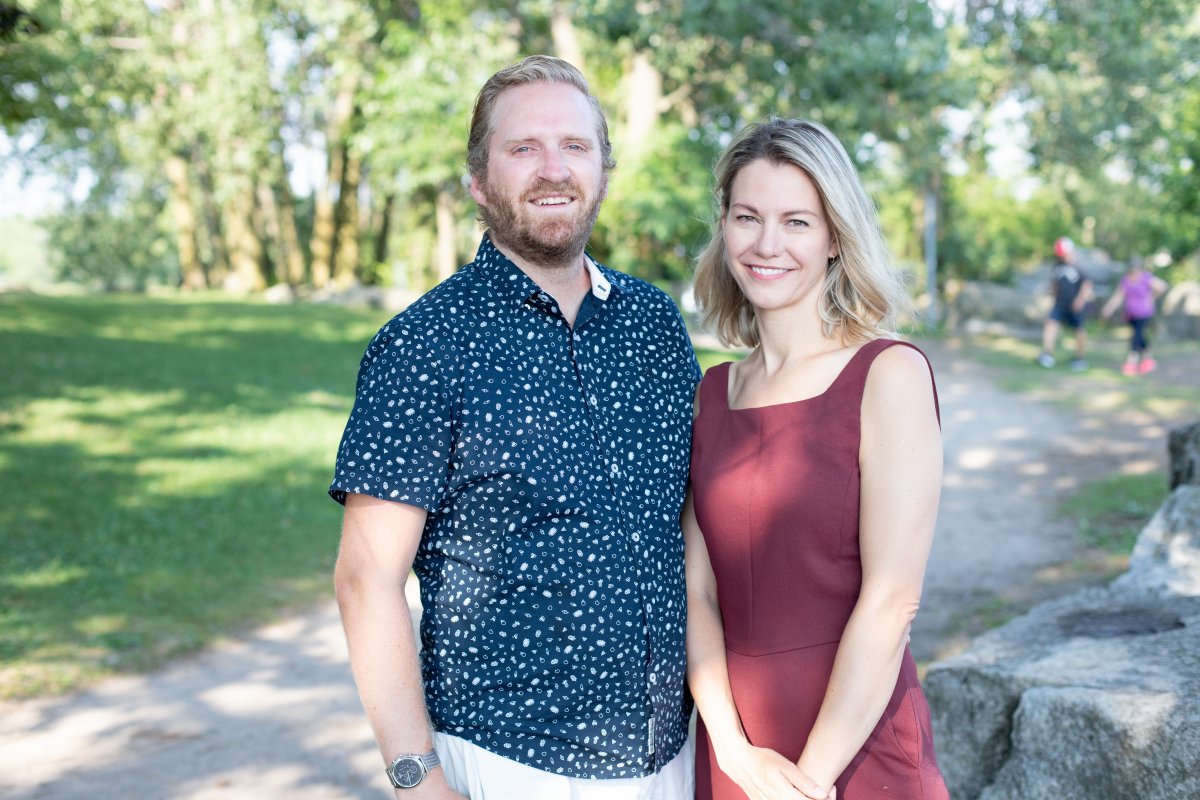

Mike: Yeah. I think the key to being able to divide and conquer is making sure that you and your partner have complementary skill sets. Make sure you’re good at different things. If you’re both operational people, then maybe it doesn’t work. Or if you’re both marketing creatives, maybe it doesn’t work. With us, we’re both able to find a lot of places that we can be good at and stay focused on.
Noelle: I’d also say that we both had 15 years into our professional careers. So, we’ve had some time to work in other environments, learn how to work with other people, and have a good project timeline that we’re able to follow to launch anything, whether that’s a website or a business. I think it helps that we’re not brand new in our careers. We both have quite developed skill sets.
Mike: Patience is another important thing as well.
And over those years of building your skill sets, was there any advice that you received, that you still think of today?
Noelle: I think one thing that’s always stuck with me, and I forget the percentage, but it’s something like, “60% of the work is showing up.” That always made an impact on me. A lot of people just don’t try and they don’t show up, so they don’t move forward. I think once you’ve made the effort to make that Zoom call or send out that email and show up, then you can bring all of your experience and your talent and your skills forward almost automatically. I think a lot of it is taking initiative and showing up.
Mike: For me, it’s kind of two things. The first one is to stay action-oriented, especially in a startup. You’re not always getting the results on the very first day. You have to start somewhere, start small, and then eventually you grow out. So I think part of it is just focusing on the inputs and what you’re doing well and being action-oriented. The results will come. I think there are a lot of people that I’ve talked to who started companies who’ve said, “Well, it took us a while to really get going.” I think you have to stay true to why you started your company but you’ll also have to be flexible and willing to pivot depending on what the customers are saying.
I think that ability to be flexible is really important. If you’re looking at data and the results aren’t what you thought, but you’ve discovered a new market where your products are growing, you need to have the ability to see that and say, “Okay, let’s pivot. Let’s move our focus.”
For example, Kilne has a knife set and we had a lot of people reaching out about individual knives. It wasn’t very hard for us to contact our suppliers and say, “Hey, can we make this work?” And they said sure. So, now we’ll have individual knives for people too, and that should also help us on the sales side. I think the goal is to not get stuck. Go with the flow, be okay with changing what your vision might be a little bit on the product side or whatever it is the customers are focused on.
Along those same lines, if you were to talk to your younger selves, would you give yourself any advice?
Mike: Have a little bit of trust in your own process to get to where you want to be. For people that want to be entrepreneurs, then go for it, but trust that there’s going to be ups and downs and it’s not going to always go perfectly. If you’re looking to work in a big company and you’re wanting to get promoted, have faith that it’s going to work out if you’re doing the right things. It comes back to putting the inputs in and then the results will come, but the results don’t always come as fast as you think. I think that was always a thing for me early on. You want everything like, “I should be promoted to VP tomorrow!” “I should be able to start my business, get funding, have the product, have customers love it within the first year.” But, only experienced people are usually able to do that. So, it’s okay to have it not work perfectly at the beginning. If you have a bit of that conviction that you’re going to get there and you have your dream of where you want to be, then you just have to keep at it.
Noelle: It isn’t often a straight line from where you are to where you want to be. Plus, where you want to be is probably going to change in 10, 15 years. So, I think it’s more of that jagged journey, as opposed to an A to B line, and you need to be okay with that. If you change your mind about where you want to end up or if you don’t perfectly get there, that’s okay.
What were those early conversations like when you were deciding and planning to launch Kilne? How did you guys get to the conclusion of starting a business together?
Noelle: I think it kind of goes back to what Mike was saying before. We have really complementary skill sets and we work quite well together. When you start a company, it’s a lot of long hours, a lot of late hours, and when you already live with that person, it’s a benefit. I don’t really feel like it was one conversation, it was kind of always in discussion.
Mike: There was a conversation early on about whether one person should run it or if we wanted to co-found it together. It just made sense to co-found because it was like, “Oh, I need to get X, Y, Z done.” And I’d be like, “Well, I can do that!” And then we were working on it together anyway, so we decided, “Let’s just do it together formally then.”
When I was at ENDY, Noelle was sort of like a de facto co-founder for me. When I came home, she worked well in terms of listening to different things and what I was working through. So, I found it an easy transition to work together with Kilne.[/vc_column_text][vc_separator color=”custom” style=”double” border_width=”3″ accent_color=”#668759″][/vc_column][/vc_row]


